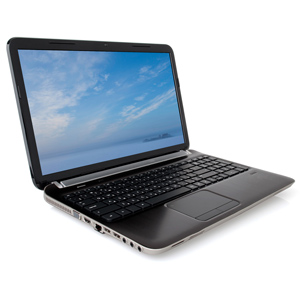Manage your law office technology so it doesn't manage you

Image from Shutterstock.
Like it or not, technology is a necessary part of a modern law practice. In fact, it may be the most important part of a practice outside of lawyers themselves. So what technology should you buy? When should you buy it? How can you successfully integrate it into your practice, and when should you replace it?
These very questions were central to an ABA Techshow presentation Thursday in Chicago on “How to Buy, Implement and Replace Technology in Your Law Practice.”
Co-presenters Sharon Nelson, a lawyer and president of Sensei Enterprises, a Fairfax, Va.-based digital forensics, information technology and cybersecurity firm, and Bjorn Christianson, a corporate and commercial lawyer at Christianson TDS in Portage la Prairie, Canada, walked attendees through the basics.
Rare is the solo or small-firm lawyer who does an annual review of his or her technology, Nelson said. Lawyers tend to buy technology when a need arises, when a partner demands the latest “cool” gadget or when something breaks.
“We call that the ‘break/fix’ method of (not) managing technology,” she said.
Most lawyers don’t even have a list of all the equipment they own, let alone when it was placed into service, Nelson added. And too many lawyers are too willing to buy something because they think they’ve found a good deal or because they ran into a vendor at a conference who promised them the moon for a song, she said. A lot of decisions are made quickly because lawyers are in such a hurry to get back to practicing law. But that often results in poor decisions being made.
When it comes time to buy, keep in mind that technology has a lifespan. For computers, laptops, tablets, smartphones and other equipment, the lifespan is about three years, the presenters said. So lawyers should budget for replacing one-third of their technology each year. Even if you don’t end up spending money that year, you will avoid having pull together money to pay a big bill for replacing everything all at once.
And don’t be cheap in your buying decisions or you’ll live to regret it, Nelson and Christianson said. Lawyers need “business-grade” machines that can handle a lot of software being used at once.
“As everybody here knows, lawyers have zero patience for slow computing,” Nelson said.
When it comes to choosing a computer, they both said you need to consider where you do most of your work. If you work mostly out of an office, you’re better off with a desktop. If you’re frequently mobile or work from several locations, a laptop or a tablet is a better option.
Also consider the benefits of a desktop scanner, a laser printer and fax software programs or services, all of which are now available at a fraction of the cost of the kind of all-in-one machine Christianson refers to as the “Big Brute.”
When choosing software, ask friends and colleagues for recommendations. Buy products that come with a 30-day free trial. See if your local bar association or law society offers practice management advice. And make use of the resources available through the ABA’s Legal Technology Resource Center.
For data storage, they both recommend keeping it on-site if you have a brick-and-mortar office or in the cloud if you are mobile.
Whichever option you choose, you need to back up your data and encrypt it. Nelson said she liked SpiderOak over other service providers because only you know the decryption key.
“The best answer to most security questions is ‘encryption is your friend,’ ” she said.



